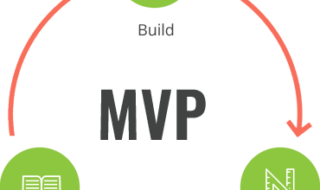Request for Proposal (RFP) Management is a crucial process that companies and organizations often use to solicit new business, establish partnerships or select the best supplier for a specific project or department. From understanding its concept, organizing the process, to mastering its techniques, gaining proficiency in request for proposal (RFP) management can greatly impact your business operations. Below, we delve into the intricate and highly rewarding process of managing RFP.
Contents
Understanding the Concept of RFP Management

In the simplest terms, request for proposal (RFP) management can be described as the systematic approach businesses take to find and select the best vendor for a project or a specific department. This is usually done by inviting multiple vendors to submit a business proposal detailing how they plan to meet the company’s specific needs.
Managing RFP starts with the formation of a well-structured RFP document which will guide the entire process. The document comprises all the information needed by vendors to understand and participate in the procurement process.
The next step in request for proposal management involves sending out the RFP to the identified vendors. This stage demands a robust supplier performance management system to track the vendors’ performance in various capacities like delivery, cost, quality, and service.
In the last stage of request for proposal management, the decision-making team now goes through the submitted proposals to select the proposal that provides the most value to the company. The decision-making process often utilizes a scoring system to rank the proposals and what is RFP management, and pick the best one.
Key Elements Characterizing a Well-Structured RFP
Designing a well-structured RFP is the backbone of successful request for proposal management. Of essence in this document is the clear articulation of the business needs that the company seeks to address. These could range from building a new website, and adopting a new marketing strategy, to purchasing new software.
Another key element of a good RFP is the inclusion of the project’s specifications. This includes the timeframes for project completion, the budget constraints, and the specific job skills required to carry out the project.
Yet another significant element is the explanation of the bid evaluation process. The RFP should explicitly spell out how the company will measure and evaluate the proposals. This transparency helps eliminate concerns from bidders who might feel left out of the process.
Lastly, a well-made RFP should also include the contract terms, proposal submission deadline, and points of contact for further inquiries or clarifications.
The Intricacies of Organizing an Effective RFP Process
Organizing an RFP process is not as simple as it may seem. It requires careful planning, orchestration, and an understanding of the business’s needs and the market landscape. The first step towards an effective RFP process is assembling a dedicated RFP team. This team should not only understand the company’s needs but also have the skills and experience to handle request for proposal management.
Once the RFP team is in place, the next step involves developing the RFP document. The team should exhaustively articulate the business needs and project specifications in the document, guiding potential bidders to submit fitting proposals.
Effective vendor identification and management is another critical aspect of an RFP process. The RFP team should have a thorough process of identifying potential vendors, reaching out to them, and tracking their performance.
Lastly, the bidding process must be transparent and fair. All bidders must be given equal opportunities and the timeline for the bid process well-defined.
Decoding the Impact of Request for Proposal Management on Business Operations

Request for proposal management greatly impacts business operations. By using a well-structured RFP process, companies can ensure that they engage with the best vendor for their needs, translating into quality services and goods for their operations.
Moreover, proficient request for proposal management helps organizations save time since the RFP process is efficient and eliminates the likelihood of engaging with vendors who do not match the company’s needs.
Request for proposal management also aids in fostering good vendor relationship management, which can lead to better deals and business partnerships. The process provides a clear communication pathway, offering a platform where issues and concerns can be addressed promptly.
Overall, request for proposal management is an integral part of business operations that when implemented properly, can lead to successful projects, fruitful partnerships, and business growth.



